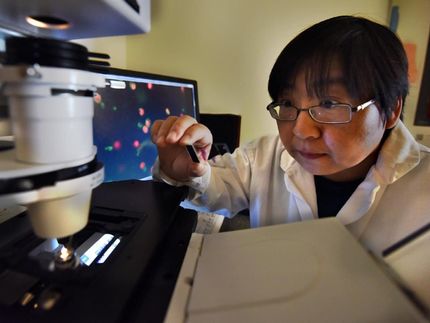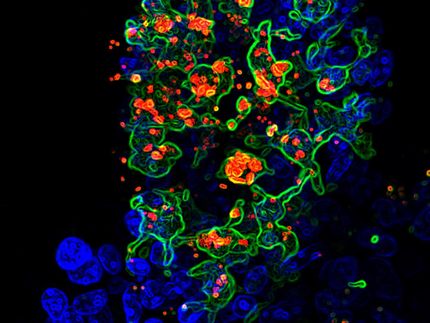Biochip Technology to Revolutionise the Pharmaceutical Industry
Advertisement
Advancements in biotechnology have culminated in its integration with semiconductor technologies such as micro-electromechanical systems, resulting in the evolution of biochips. Biochips provide pharma companies with sophisticated tools for speedy development of drugs and accurate diagnosis and understanding of biological mechanisms.
New analysis from Technical Insights (http://technicalinsights.frost.com) states: "DNA and protein biochips streamline drug development and significantly lower average drug screening costs from $2 to $0.0001. However, in order for biochip manufacturing to be successful, maintaining the precision involved in making the silicon chips and handling delicate DNA molecules is essential."
Biochips also simplify the decoding of genes in order to completely understand their role in health and disease. Other practical applications include handheld devices for testing microbes in food and DNA fingerprinting. Additionally, bioterrorism and biowarfare threats are driving demand for biochips, which are likely to be critical to detect biological and chemical warfare agents.
With the transition of the medical lab-on-chip (LOC) from a concept to a reality, the focus has been on developing high-density and smaller-sized biochips where less than 300 wafers can accommodate the entire human genome. As opposed to conventional laboratory analysis, LOCs eliminate the need for trained personnel and expensive equipment to provide significant time and cost efficiencies.
Recent innovations in Europe have given rise to the 'lab-on-a-pill' initiative that is likely to change the future of diagnostic procedures. It relies on a biosensor and system-on-chip technology that examines bodily fluids for crucial data such as temperature, dissolved oxygen and pH levels. Also, its ease of use is likely to stimulate replacement of invasive endoscopic procedures and aid in early detection of colon cancer.
The biosensor chip technology also provides quick and easy access to critical information regarding DNA damage from cancer-producing compounds, taking researchers a step closer in the fight against cancer. A laser-based, high-resolution and low-temperature fluorescence method provides a direct fingerprint of the molecule, unlike conventional biosensing methods.
Though plastic, silicon and glass protein biochips capture molecules, the proteins bind only to that portion of the chip where they locate a natural interaction partner. Researchers in Europe are now developing a new protein microchip based on silica-based nanoparticles that are not as selective and capture numerous proteins. This is likely to aid in the early detection of illnesses and provide greater sensitivity in molecular biology research, drug screening and diagnostics.
The rapid evolution of glycomics as a natural extension of proteomics has provided a better understanding of glycoproteins and glycosylation, and their role in the protein function. This enriches the biopharmaceutical industry with novel protein-based biodrugs.
The progress of glycomics in the biopharmaceutical industry is evident from the existence of approximately half a dozen drugs in which manipulation of carbohydrates and proteins provides advanced drug properties. For example, Epogen - the glycotherapeutic drug - contains two additional carbohydrate groups that can extend circulatory half-life and magnify efficiencies.
"Glycoprotein therapeutics is the fastest growing segment in the biopharmaceuticals industry where raising the production capacity at least by four times more than the existing capacity is a significant challenge," notes Technical Insights. "Alternate manufacturing media such as transgenic plants and animals, besides the mammalian and microbial/fungal cell culture systems, is expected to play an important role in tackling this issue".
Fungal cell lines provide considerable time and cost benefits over mammalian cell lines. For instance, the latter is not only a lengthy process, but is also likely to alter the properties of the final therapeutic glycoprotein. Conversely, fungal cell lines such as engineered yeast expression systems facilitate production of humanly glycosylated protein, provide faster fermentation and generate higher product yield.
Reverse genomics that identifies therapeutic proteins through a deconstructive approach is another relatively new concept cashing in on the success of biotechnology. It hinges upon chemical genomics and proteomics to link potentially therapeutic compounds to proteins, define the role of these proteins in cellular pathways and ultimately to detect the mode-of-action of drug candidates.
Nanobiotechnology is also creating a new revolution in the pharmaceuticals industry, which has always been keen on developing better drug delivery systems. Small size, unique physical structures and electronic properties facilitate novel site-specific and controlled release of drugs. Additionally, minute nanoparticles such as quantum dots may serve as imaging agents, revolutionising conventional diagnostic imaging.
Biotechnology Industry Impact Service, part of the Biotech Vertical Subscription Service, provides a comprehensive analysis of recent technological advances in biotechnology. It provides key technical challenges, drivers, and cutting-edge developments influencing market growth. The study also evaluates emerging applications, which enable participants to ascertain future opportunities. Executive summaries and interviews are available to the press.
If you are interested in an analysis overview which provide manufacturers, end-users and other industry participants an overview, summary, challenges and latest coverage of the Biotechnology Industry Impact Service - then use the Info Request button below.


























































